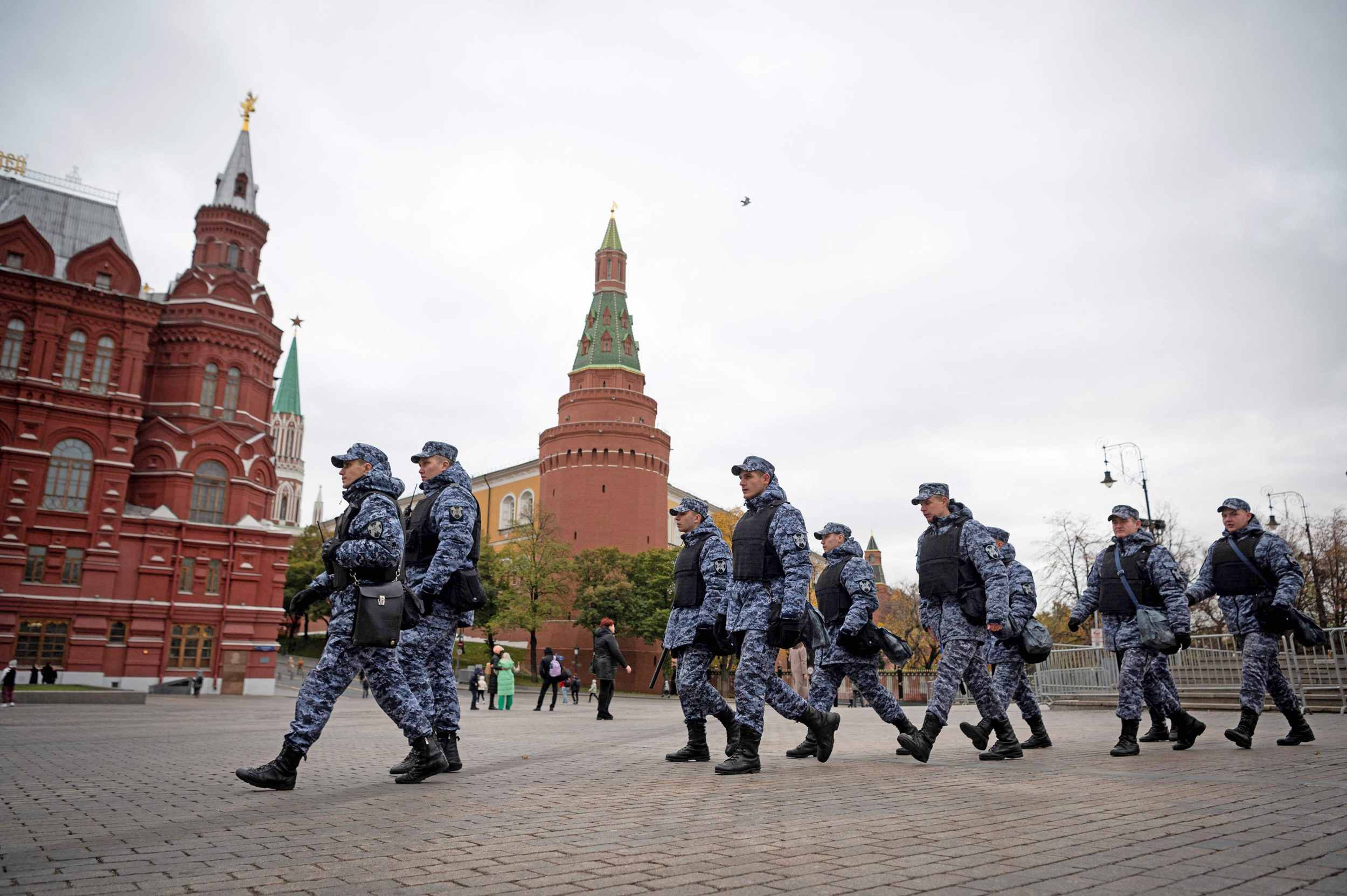The war started by Vladimir Putin should end only with Ukraine strong enough to defeat any future aggression from Moscow, the Institute for the Study of War (ISW) says, with its maps comparing the latest situation on the ground with territory held before Russia’s 2022 invasion.
In an analysis published New Year’s Eve, the Washington, D.C., think tank addressed suggestions that Kyiv should consider ceding territory to end the war, which has killed hundreds of thousands and displaced millions.
The U.S. is the biggest donor of military aid to Ukraine, but further assistance from Washington has been held up by Republican lawmakers who question the ongoing financial commitment that Ukraine wants.

A Ukrainian army scout is pictured on December 23 in Avdiivka, Ukraine. The Institute for the Study of War, a U.S. think tank, says that Ukraine must be given the resources to defeat Russia and prevent future aggression from Moscow.
Kostya Liberov/Getty Images
The GOP-controlled House has not approved President Joe Biden‘s funding request for $106 billion, which includes $61 billion in additional aid for Ukraine and funds for Israel and U.S. border security.
GOP Senator J.D. Vance told CNN‘s State of the Union that it was in the U.S.’s “best interest” to accept that Ukraine would give up some territory to Russia because it was unlikely Kyiv’s forces could force Russian troops back behind the borders in place before they invaded in February 2022.
But the ISW said that the only outcome the U.S. and its allies should accept is a Ukraine that can “deter and defeat” any future aggression by Moscow while maintaining “an economy strong enough to prosper without large amounts of foreign aid.”
Newsweek has emailed the Russian Defense Ministry for comment.
Amid discussions about pressing Ukraine to trade land that the Russians now occupy for a ceasefire or armistice are rumors of the Kremlin’s interest in negotiations of some sort, the ISW said. These discussions largely focus on the supposed intransigence of Ukrainian President Volodymyr Zelensky.
But that argument ignores “the military, economic, and financial consequences that these territorial sacrifices would have for Ukraine’s long-term security and economic viability,” according to the ISW.
It also ignores “the future financial burden they would impose on the supporters of an independent Ukraine.” Furthermore, there are military and economic reasons for Ukraine to try to liberate all of the territory Russia now occupies.
“The current lines cannot be the basis for any settlement remotely acceptable to Ukraine or the West,” the ISW said, adding that “trusting Russian promises of good behavior would be foolish.”
The ISW’s latest maps reveal that Ukraine’s borders, and the line of contact between Ukraine and Russia before the 2022 invasion, were about 2,000 miles and included large defendable areas, especially in the northeast.

This map from the Institute for the Study of War shows Russian-occupied Ukraine before Vladimir Putin’s 2022 invasion.
Institute for the Study of War
Another map, dated December 31, shows how Russia’s territorial gains would become a staging area for a future invasion and that Ukraine must liberate the Kherson and Zaporizhzhia regions to avoid this.

This Institute for the Study of War map, dated December 31, shows what the ISW considers to be the regions that Ukraine must liberate to prevent a future Russian invasion.
Institute for the Study of War
The ISW said that Russia will not abandon its maximalist aims now or in the future and that “the most advantageous lines Ukraine could hold militarily and economically are its internationally recognized 1991 boundaries.”
This means that freezing the war’s gains now “enormously advantages Russia and increases the risks and costs to Ukraine and the West of deterring, let alone defeating, a future Russian attempt to fulfill Putin’s aims by force.”
Newsweek is committed to challenging conventional wisdom and finding connections in the search for common ground.
Newsweek is committed to challenging conventional wisdom and finding connections in the search for common ground.
